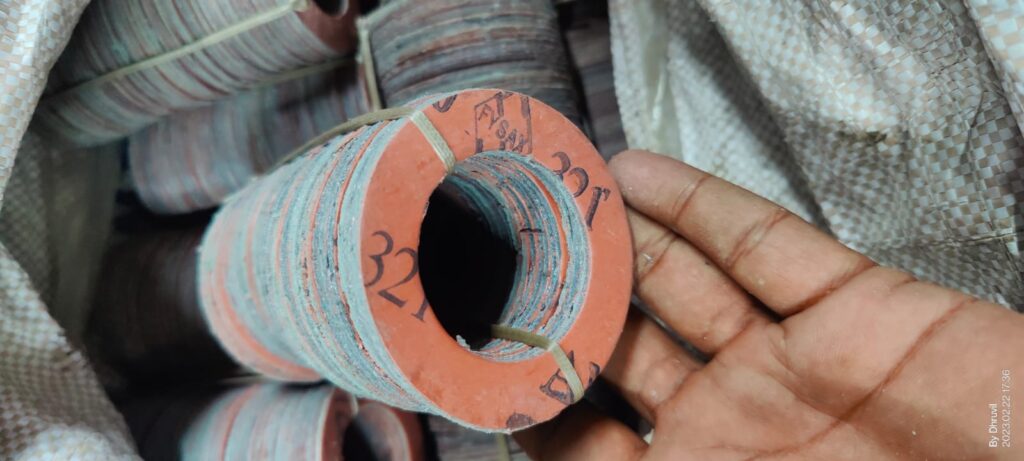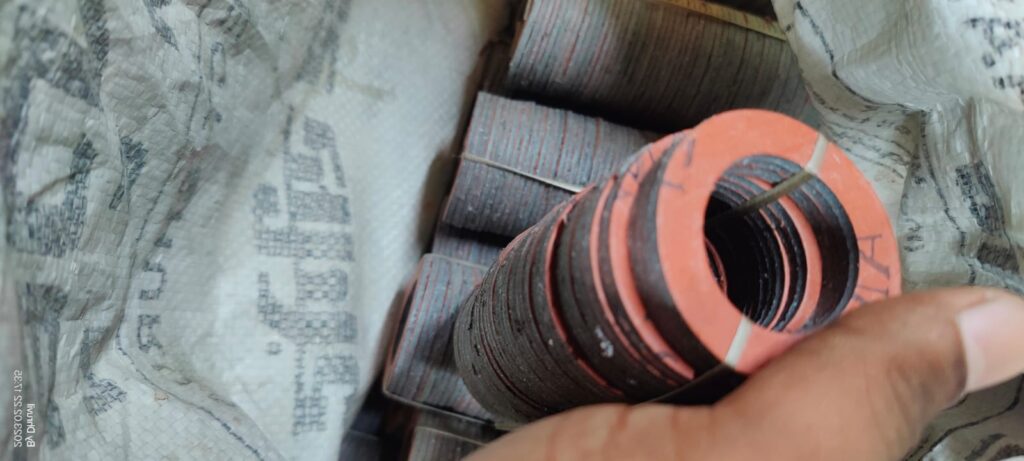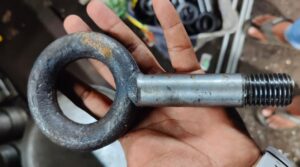Demystifying Gasket Size: Understanding Its Significance in Sealing Applications
Gaskets may seem like small, unassuming components, but they play a critical role in various industries, including automotive, manufacturing, and construction. Their size, shape, and material can have a significant impact on the performance and reliability of mechanical systems. In this blog, we will delve into the importance of gasket size, exploring how it affects the efficiency and effectiveness of sealing applications.
What is a Gasket?
Before we delve into gasket size, let’s start with the basics. A gasket is a mechanical seal used to fill the space between two or more mating surfaces. Its primary purpose is to prevent the leakage of fluids or gases, making it an integral part of many systems where sealing is crucial. Gaskets come in various materials, such as rubber, cork, paper, metal, and composite materials, and are designed to withstand a range of temperatures, pressures, and chemical exposures.
The Role of Gasket Size
The size of a gasket is a critical factor in ensuring a proper seal. It is determined by the inner and outer diameters, as well as the thickness of the gasket. The size must be carefully selected to match the specific requirements of the application. Here’s why gasket size matters:
1. Surface Coverage: The size of the gasket determines how much of the mating surfaces it covers. Inadequate coverage can lead to gaps, which can result in leaks. On the other hand, an oversized gasket may create unnecessary stress and deformation in the sealing system.
2. Compression: Gaskets rely on compression to create a tight seal. The size and thickness of the gasket dictate the amount of compression required to achieve an effective seal. If the gasket is too thick or too thin, it may not compress correctly, resulting in a less-than-optimal seal.
3. Bolt Hole Alignment: Gasket size plays a role in ensuring that the bolt holes on the flanges align correctly. An improperly sized gasket can cause misalignment, making it challenging to assemble the components securely.
4. Temperature and Pressure Resistance: Depending on the application, gaskets need to withstand specific temperature and pressure conditions. The size and material of the gasket should be chosen accordingly to ensure it can perform reliably in the given environment.
Selecting the Right Gasket Size:
Choosing the right gasket size involves a thorough understanding of the application’s requirements. Here are the key steps in selecting the appropriate gasket size:
1. Measurement: Measure the mating surfaces accurately. The inner and outer diameters of the gasket should correspond to these measurements.
2. Thickness: Consider the required compression, pressure, and temperature conditions when selecting the gasket thickness. Thicker gaskets provide better sealing under high pressures, while thinner gaskets are suitable for low-pressure applications.
3. Material Selection: Depending on the medium being sealed and the environment, choose a gasket material that is chemically resistant and capable of withstanding the operating conditions.
4. Consider Flange Design: The design of the flange and the method of gasket installation can also affect the size of the gasket. Ensure that the gasket size aligns with the flange design.
5. Consultation: If you’re unsure about the correct gasket size for your application, consult with gasket manufacturers or experts who can provide guidance based on their experience and expertise.


Conclusion
Gasket size is a fundamental aspect of sealing applications that should not be overlooked. A properly sized gasket ensures a secure and efficient seal, preventing leaks and ensuring the reliability of mechanical systems. Take the time to carefully measure, select the appropriate thickness, and consider the material when choosing a gasket size for your specific needs. By doing so, you can help ensure the long-term performance and safety of your equipment and systems.
Bhansali Metalloys Inc is one of the leading Manufacturer, Exporters, and Suppliers of High Quality Gaskets all over in India. We are Manufacturer, Supplier and Dealer of various types of Fasteners such as Bolts, Nuts, Screws, Washers, Threaded Rods and many more. We are Gaskets Manufacturer in India. These Fasteners are available in different grades and materials. We are Gaskets Manufacturer, Supplier, Dealer, and Exporter in India. We are Gaskets Supplier in India. Contact Us +919152160158 or email to info@bhansalimetalloysinc.com for Gaskets price list.
For our full list of products that we offer check out our website here. Be sure to join the conversation in our Facebook, Instagram, Twitter, LinkedIn Group.
Each Stainless Steel Gaskets is otherwise designed based on the characteristics of the applying and additionally the pressure. Consequently, different industries use different Gaskets. We also produce customized Gaskets Products at our factory as per our client’s requirements. For any types of Gaskets Price List Call on +91 9152160158 or drop an Email to info@bhansalimetalloysinc.com | exportbmi32@gmail.com
We Export Across the Globe
Exports in Asia Afghanistan, Armenia, Azerbaijan, Bangladesh, Bhutan, Brunei Darussalam, Cambodia, China, Georgia, Hong Kong, India, Indonesia, Japan, Kazakhstan, South Korea, Kyrgyzstan, Laos, Macao, Malaysia, Maldives, Mongolia, Myanmar (ex-Burma), Nepal, Pakistan, Phillipines, Singapore, Sri Lanka (ex-Ceilan), Taiwan, Tajikistan, Thailand, Timor Leste (West), Turkmenistan, Uzbekistan, Vietnam.
Export to Africa Burundi, Comoros, Djibouti, Eritrea, Ethiopia, Kenya, Madagascar, Malawi, Mauritius, Mayotte, Mozambique, Reunion, Rwanda, Seychelles, Somalia, Tanzania, United Republic of Uganda, Zambia, Zimbabwe, Angola, Cameroon, Central African Republic, Chad, Congo (Brazzaville), Congo, Democratic Republic of the Equatorial Guinea, Gabon, Sao Tome and Principe, Algeria, Egypt, Libyan Arab Jamahiriya, Morroco, South Sudan, Sudan, Tunisia, Western Sahara, Botswana, Lesotho, Namibia, South Africa, Swaziland, Benin, Burkina Faso, Cape Verde, Cote d’Ivoire (Ivory Coast), Gambia, Ghana, Guinea, Guinea-Bissau, Liberia, Mali, Mauritania, Niger, Nigeria, Saint Helena, Senegal, Sierra Leone, Togo.
Export to America Anguilla, Antigua and Barbuda, Aruba, Bahamas, Barbados, Bonaire, Saint Eustatius and Saba, British Virgin Islands, Cayman Islands, Cuba, Curaçao, Dominica, Dominican Republic, Grenada, Guadeloupe, Haiti, Jamaica, Martinique, Monserrat, Puerto Rico, Saint-Barthélemy, St. Kitts and Nevis, Saint Lucia, Saint Martin, Saint Vincent and the Grenadines, Sint Maarten, Trinidad and Tobago, Turks and Caicos Islands, Virgin Islands (US), Belize, Costa Rica, El Salvador, Guatemala, Honduras, Mexico, Nicaragua, Panama, Argentina, Bolivia, Brazil, Chile, Colombia, Ecuador, Falkland Islands (Malvinas), French Guiana, Guyana, Paraguay, Peru, Suriname, Uruguay, Venezuela, Bermuda, Canada, Greenland, Saint Pierre and Miquelon, United States.
Export to the Middle East Bahrain, Iraq, Iran, Israel, Jordan, Kuwait, Lebanon, Oman, Palestine, Qatar, Saudi Arabia, Syria, United Arab Emirates, Yemen.




